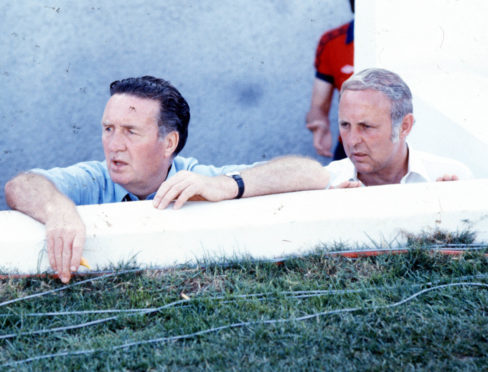In football, as in politics, most careers end in failure.
Arsene Wenger’s departure at Arsenal after almost 22 years in the hot seat is the latest example.
The longevity of the Frenchman as manager is unlikely to be seen again in British football. Only Jim McLean and Alex Ferguson in fairly recent history are in the same bracket for club loyalty and service to the cause.
Sixty-eight-year-old Wenger, who had a year left to run on his contract, won seven FA cups and three Premier League titles at the famous old London club, but in the last few years the supporters directed some ferocious criticism at him as he failed to land silverware, and match the competition.
Football is an unforgiving business. Few managers escape without some damage to their reputations at the end.
Jim McLean brought Dundee United undreamt of success, but in the end as the game changed, with the Bosman ruling allowing freedom of movement, and the sheer uphill struggle of competing with better resourced clubs, he too found previous heights impossible to climb.
Even the great Jock Stein, the first British manager to win the European Cup, found himself manoeuvred out of the manager’s job at Celtic by the board, to be replaced by legendary skipper Billy McNeill.
Some get out at the top. Sir Alex went of his own volition while his powers were still formidable, while the great Bill Shankly, widely acknowledged as the creator of the great force which Liverpool became, went too early, and subsequently pined for the job he left at his own choosing.
In football as in life we’re all ultimately replaceable, some folk though may be harder to replace than others. Arsenal may well identify the man to restore them to what they feel is their rightful place in English football.
They might, though, have some very fallow years ahead, in attempting to replace a man who became as recognisable a part of the English football scene, as the old Wembley stadium.
* It’s the time of the season when as fans we’re expected to get excited about artificial introductions like top six finishes and the play-offs.
The replacement of time honoured concepts such as the two bottom clubs being automatically relegated, and the two top ones being promoted has long since been sacrificed on the altar of modernisation.
The system may lack integrity, but some fans feel it adds excitement. It’s just one of the many ways the game has, and will continue to change, to adapt to fresh challenges.
The next major development is the move towards a proper pyramid system in Scottish football, with many top junior clubs now eager to pit themselves against clubs who have been part of the professional leagues in Scotland for over a century.
In 10 years time the game here may look very different, with some familiar clubs being seriously challenged by ambitious former juniors like Kelty Hearts and Bonnyrigg Rose.
The pyramid set up revitalised lower league English football. It’ll happen here too, but it may put some old football noses out of joint.


